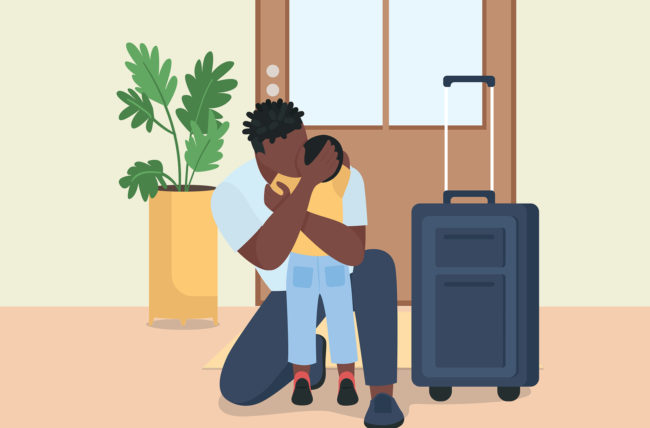
How To Help Your Child After A Breakup Or Divorce – Divorce can end some unhappy, unhealthy unions, and in the end, can become the best solution for a struggling family. However, assuming that you’re a parent going through it, you’re most likely contemplating something other than yourself. Assuming you keep awake around evening time thinking about how your children are impacted — you’re in good company.
There are ways of making this familial change somewhat more straightforward for everybody. A Pediatrician says that divorce and separation can affect children at whatever stage in life. “When parents are going through difficult times, children perceive that, regardless of their age. So while kids may express their stresses in different ways at different ages, it’s important for parents to be as open and honest as possible, even with difficult situations,” she says.
How are kids affected by divorce?
For children, divorce may be a very traumatic and overwhelming experience. Some children fault themselves for the separation of a marriage and experience sensations of guilt.
Others might carry on, or academic performance may decline.
When a child experiences conflict, it creates anxiety and cognitive dissonance in them, often causing them to align with one parent over another to ease their discomfort or turn to outside, unhealthy outlets to express their feelings.

Depending on the child’s age, they might encounter disarray (normal in more youthful kids), anger (common in teenagers), stress and responsibility. Every circumstance is extraordinary.
“The good news for parents is that it is possible to reduce these psychological effects,” says the Pediatrician.

The following are ten things you can do to assist your youngster with exploring this troublesome time.
Ways of aiding your kid adapt to divorce
1. Stay involved in your child’s life. When you are not invested or don’t make time for your child, they feel unimportant. Your child wants both parents to be a part of their life. Make sure your child knows how much you love them. Make time in your schedule to do fun activities or spend quality one-on-one time.
2. Work hard to co-parent. When you fight, especially about a child, they will blame themselves and think they’ve done something wrong. This leads to feelings of guilt or depression. Attempt to keep your child out of the middle of arguments by discussing things when they aren’t present. Discuss things directly with the other parent instead of relaying information through the child.
3. Be supportive of the time your child spends with the other parent. Encourage your child to enjoy time with the other parent and new, extended family (if the other parent has started a new relationship or remarried).
4. Limit negative things said about the other parent. If you are saying derogatory things about the other parent, this forces a child to feel like they need to agree with you or take sides. Don’t blame the other parent.
5. Communicate honestly. Children deserve to know the truth about why you are getting a divorce, but simplify it. Plan ahead and carefully relay information. If possible, tell the child together. Explain the upcoming changes with living arrangements, activities, school routine, etc.
6. Help your child express their feelings. It is imperative to listen to your child. Encourage them to be honest and acknowledge their feelings. Talking about divorce may be an ongoing process. Let them know they have no fault in the divorce. It is normal for them to express feelings of anger, resentment, depression or anxiety. This should gradually fade over time.
7. Let them know everything is going to be okay. Change is hard. Reassure them that even though there will be some alterations in their schedules and daily routines, it will be possible to adapt and settle into a new normal. Teaching mindfulness can even create a new bond between you.
8. Keep routines intact. Establish consistency and structure. This allows your child a sense of peace and stability when other aspects of their life are changing. However, don’t let them break the rules or become lax with chores/responsibilities.
9. Take care of yourself. Take time for your own self-care. Find productive ways to cope with your circumstances by exercising, eating healthy, keeping in touch with friends or writing in a journal. You can even join a support group.
10. Consider counseling. If your child is overwhelmed by the divorce, seek professional help. A counselor or therapist can provide reassurance for you and your child, and establish a framework for healing and hope for the future.
If you are interested in considering professional help, talk with your child’s pediatrician about getting a referral to see a counselor. This will help ensure their social, emotional and spiritual well-being.
 News360hub Get the latest breaking news, world News and information on the top stories, business, sports, entertainment, politics, and more.
News360hub Get the latest breaking news, world News and information on the top stories, business, sports, entertainment, politics, and more.


